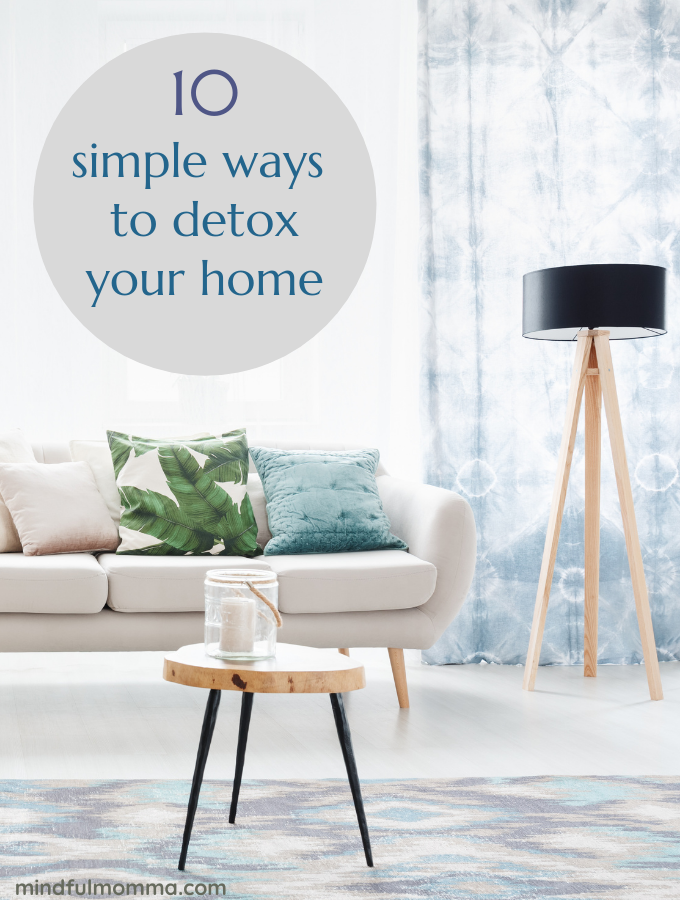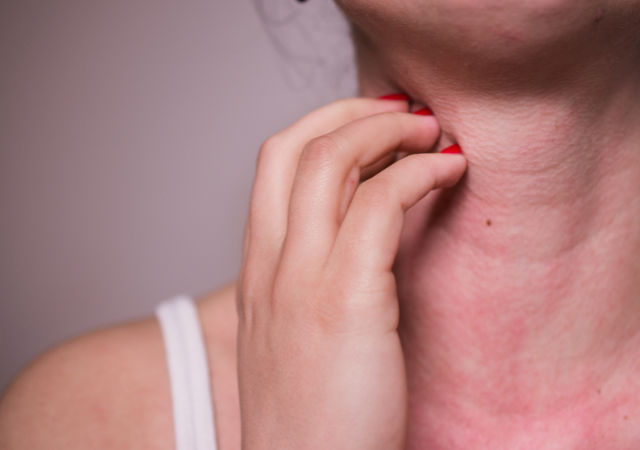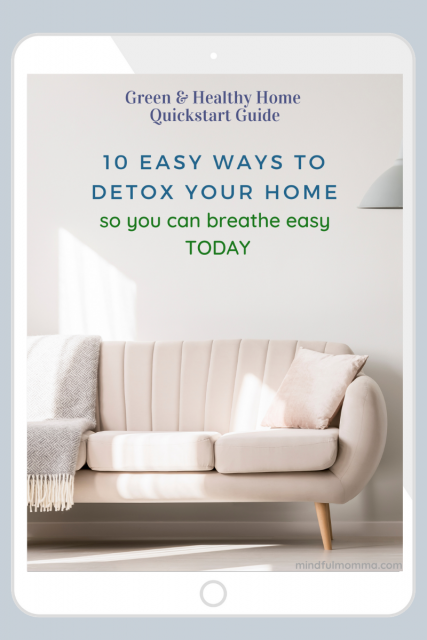Why You Should Finally Detox Your Home + 10 Ways to Start Now
Learn 10 easy ways to detox your home now in order to avoid common toxic chemical exposures and the negative health conditions that result.

When we hear the term detox, our minds often go straight to food. While what we eat and drink is extremely important to our health, it’s not the only thing that impacts our wellbeing. The environment we live in and the products we use every day has a huge impact on our health as well. Making the effort to detox your home and the products you use will help you avoid many toxic chemical exposures and can lead to better health outcomes, both in the short and long term.
At Mindful Momma we only endorse products we’ve personally researched, tested, and honestly love. We may receive commissions from affiliate links in this article including Amazon Affiliates. Full Disclosure
Why Detox Your Home
Whether you are lounging on the couch, cooking in the kitchen or sleeping at night, your body is absorbing and inhaling all the chemicals hiding out in your home. Believe it or not, the average home may contain as many as 400 chemicals, according to a 2009 study in the journal Environmental Science & Technology. Those chemicals may be invisible, but they can wreak havoc on your body.
Here are some of the health conditions that may develop due to toxic chemical exposures:
- allergies
- asthma
- headaches/migraines
- developmental abnormalities
- cognitive impairment
- cardiovascular disease
- fertility problems
- metabolism issues
- immune disorders
- cancer
Types of Chemicals in Your Home
Endocrine Disrupting Chemicals
Many of the chemicals that make their way into our home and products act as endocrine disruptors. Endocrine disrupting chemicals confuse your body by messing with the amount of hormones produced, interfering with hormone signaling, or causing hormones to act in unusual ways. This can lead to serious health issues including cancer, fertility problems, cognitive impairment, changes in metabolism, and immune disorders.
Endocrine disrupting chemicals come in many forms and show up in many products – from body care to cleaning products to furniture. Sadly, there is very little regulation for these potentially dangerous chemicals.
Let’s take a look at a few of the endocrine disrupting chemicals that you might encounter in your home and the products you use:
Bisphenol A (BPA) – A chemical used in plastics and coatings, including some plastic bottles, food can linings and receipt paper.
Phthalates – Chemicals used to soften plastics and to make fragrances last longer. Found in plastic dishes, containers and water bottles, as well as in most fragranced products (including personal care and cleaning products).
Perchlorate – A chemical used in industrial products including missile fuel, fireworks, and fertilizers, that has contaminated the drinking water supply in some parts of the country.
Fire Retardants – Fire retardants chemicals known as polybrominated diphenyl ethers, or PBDEs and are found in upholstered furniture, mattresses, carpet padding, and some kids pajamas.
Lead – Although lead is a naturally occurring metal, it is extremely dangerous, especially to kids. Lead can be found in old paint (think windowsills and old furniture), as well as drinking water.
Perfluorinated Chemicals (PFCs) – These are the chemicals (also known as PFOA and PFAS) used to make non-stick cookware, as well as stain and water-resistant coatings on clothing, furniture and carpets.
Glycol Ethers – Solvents found in paint and some cleaning products (under the chemical names of 2-butoxyethanol and methoxydiglycol)
Allergies and Asthma
Problems with allergies and asthma can be triggered by chemical exposures. Artificial fragrances and other chemicals in personal care and laundry products may cause skin allergies.
Volatile organic compounds (VOCs) coming from paint, cleaning products, plastic shower curtains, and air fresheners may trigger an asthma attack.
RELATED: Toxic Chemicals in Cookware to AVOID
10 Easy Ways to Detox Your Home
I hope I didn’t scare you too much with all that chemical talk. The good news is there are some very easy steps you can make to detox your home environment quickly. To get all the details on why these steps are important and how to implement them, download my FREE Green & Healthy Quickstart Guide! (Note: if you are already on my mailing list you will find this guide in the Resource Library)
1.) Leave Shoes at the Door
2.) Stop Microwaving Plastic
3.) Toss Toxic Non-Stick Pans
4.) Drink Filtered Water
5.) Avoid Toxic Cleaning Products
6.) Ditch Dryer Sheets
7.) Stop Using Air Fresheners
8.) Avoid Artificially Scented Products
9.) Dust & Vacuum Frequently
10.) Open Windows
Are you ready to detox your home? Which steps will you take first?





